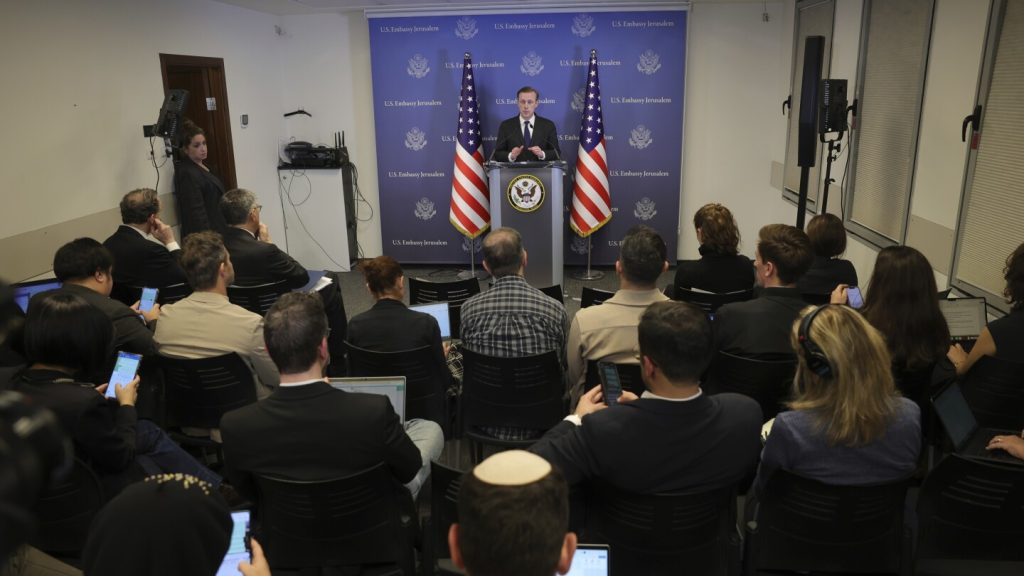During his visit, Sullivan is expected to discuss key defense and technology initiatives with Indian officials, highlighting the importance of the partnership between the two countries in these critical areas. The U.S. and India have recently launched a technology initiative outlining collaboration on semiconductor production and developing artificial intelligence, signaling a deepening of ties between the two nations. This collaboration was instrumental in securing a deal that allowed General Electric to partner with India’s Hindustan Aeronautics for jet engine production in India. The visit is seen as a high-profile opportunity to strengthen bilateral relations and address key strategic concerns in the region.
The growing partnership between India and the U.S. comes in response to China’s increasing assertiveness in the Indo-Pacific region, prompting both countries to seek closer cooperation on security and defense issues. President Biden’s hosting of a state dinner for Prime Minister Modi last year underscored the importance of the relationship between the two nations. However, recent events have also strained ties, including U.S. prosecutors’ accusations in 2023 of an official in Modi’s government being involved in an assassination plot against a Sikh activist in New York, as well as the killing of another Sikh activist in Canada. These incidents have highlighted the complexities and challenges in the U.S.-India relationship.
The visit by National Security Adviser Jake Sullivan is a clear signal of the Biden administration’s commitment to enhancing strategic cooperation with India on key technology and defense initiatives. Sullivan’s speech at the Indian Institute of Technology in New Delhi will emphasize the U.S. view of the partnership with India as central to its regional and global priorities, with bipartisan support. Meetings with top Indian officials, including National Security Adviser Ajit Doval and External Affairs Minister Subrahmanyam Jaishankar, will focus on further collaboration in strategic areas such as defense, space, and artificial intelligence. The visit is expected to pave the way for future engagement and collaboration between the two countries.
The technology initiative launched by India and the U.S. underscores the importance of joint efforts in addressing critical technological challenges and opportunities in key sectors such as semiconductor production and artificial intelligence. The collaboration between the two countries in these areas is seen as crucial for advancing innovation and enhancing competitiveness in the global market. By partnering on initiatives like jet engine production, India and the U.S. are not only strengthening their bilateral relations but also contributing to the growth and development of key industries in both countries. The visit by Sullivan is expected to build on these initiatives and explore new avenues for cooperation in strategic technology areas.
The U.S.-India relationship is at a critical juncture, with both countries facing shifting geopolitical dynamics and security challenges in the region. The visit by National Security Adviser Jake Sullivan is an important opportunity to reaffirm the commitment to cooperation and partnership between the two nations. By addressing key strategic concerns and advancing joint initiatives in defense and technology, the U.S. and India can strengthen their position in the Indo-Pacific region and address common security challenges. The Biden administration’s engagement with India underscores the strategic importance of the partnership and the shared goals of promoting peace, security, and prosperity in the region.
Overall, National Security Adviser Jake Sullivan’s visit to India highlights the growing importance of the U.S.-India partnership in addressing key strategic challenges and opportunities in defense, technology, and security. The visit underscores the Biden administration’s commitment to deepening cooperation with India on critical issues and advancing joint initiatives in key sectors. The collaboration between India and the U.S. on technology initiatives and defense projects reflects a shared commitment to enhancing innovation, competitiveness, and security in the region. By strengthening ties and addressing common challenges, both countries can advance their shared interests and contribute to stability and prosperity in the Indo-Pacific region.


